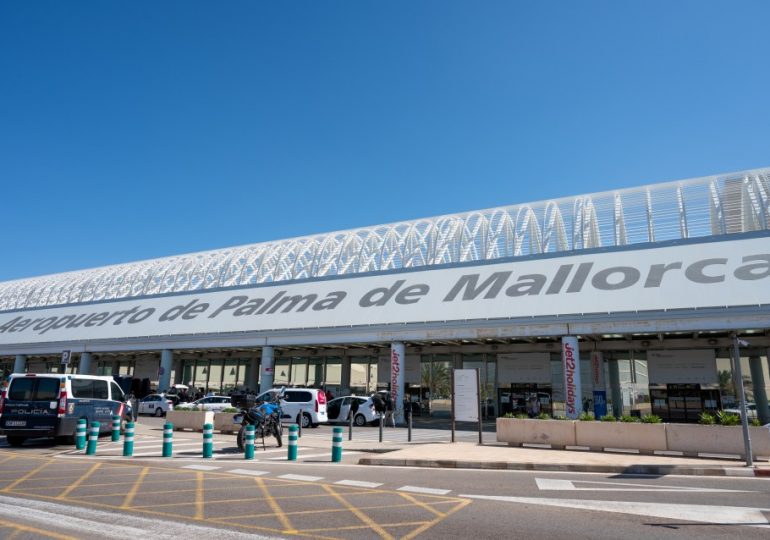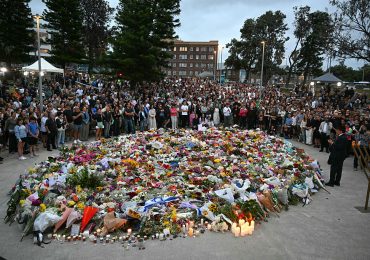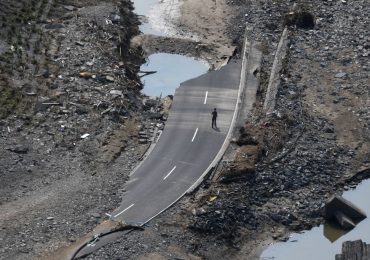PLANS to blockade Majorca’s busy international airport as part of a mass anti-tourism protest have been slammed by local politicians.
Anti-tourism zealots are expected to run rife across the Spanish hotspot island this summer despite being slammed by the region’s lead political party.
GettyAnti-tourist zealots are threatening to blockade the Palma de Mallorca Airport[/caption]
EPAProtests have already been running rife across Majorca and the Canary Islands ahead of this summer[/caption]
GettyLocals are demanding that tourism numbers are capped for the benefit of their own future[/caption]
The Popular Party says it would just annoy tourists as well as residents and affect those “who are in no way to blame.”
Campaigners put forward the radical tactic at a citizen’s assembly last Friday at a school in the inland Majorcan town of Sineu, saying cars could mass outside Palma de Mallorca Airport and cause traffic gridlock.
Activists promising an “intense summer” also mooted the idea of protests outside island hotels or collapsing iconic beaches like es Trenc in the south-east of Majorca.
No date was finalised for the demos and nothing set in stone but activists showed they were serious about the airport proposal by discussing its legal implications and the wisdom of setting up a fund to pay fines levied by the authorities.
Business owners on the island reacted by criticising the proposal, insisting making life difficult for tourists was not the way and signalling it could bring job losses.
Philippa Waldren of Palma, Majorca’s capital city, was quoted in local press as saying: “Tourists will go elsewhere.
“Many nationalities are having a tough time with the cost of living and unstable political situations.
“They do not want to be met at the airport by protesters or made to feel unwelcome. Majorca will be a very different place if visitors decide they have had enough too.”
Overnight, Sebastia Sagreras, the Popular Party’s spokesman in the Balearic Islands Parliament, said: “We always respect the views of different groups, but I cannot agree that a good way to start is by collapsing the airport or the beach of es Trenc and therefore annoying tourists and residents.
“These mobilisations would end up affecting those who aren’t to blame for anything.”
He added: “The public are fully aware illegal tourist rentals have not been forcefully tackled and legal tourist quotas have risen more than 20 per cent.”
The Popular Party didn’t achieve an absolute majority in last year’s regional elections but is governing thanks to a pact with right-wing party Vox.
Manuela Canadas, Vox’s parliamentary spokeswoman at regional level, has gone further and said some of the protesters complaining about tourist massification are guilty of “tourism-phobia” and are playing with peoples’ jobs.
Association Menys Turisme, Mes Vida, which translates into English as “Less Tourism, More Life”, organised last Friday’s meeting to prepare the way for a large protest against so-called tourist massification and the effect it has on the lives of local people.
More than 300 people took part in the brain-storming session.
A separate protest against “tourist overcrowding” this Saturday in Palma has already been announced.
An organisation called Banc del Temps has organised the event under the slogan “Mallorca no se vende” – Spanish for “Majorca is not up for sale”.
A group called Prou has organised a protest which will take place on the neighbouring island of Ibiza on Friday night against the “stress” mass tourism brings.
Activists are calling on everyone who supports a “sustainable Ibiza” to join them and have flagged up the problems of a lack of affordable housing and packed public spaces as issues they want to combat.
Thousands of people in the Canary Islands took to the streets of the Atlantic archipelago last month to protest against the problems caused by mass tourism and demand their politicians take action.
Government officials in Tenerife, where protesters held up banners saying “You enjoy we suffer” and “Tourism moratorium now”, said around 30,000 people had taken part but organisers put the figure at 80,000.
Anti-tourist graffiti has appeared in both Majorca and Tenerife in recent weeks.
RexGraffiti against tourism spotted in Barcelona earlier this year[/caption]
Canary Islands residents believe their standard of living is dropping as a result of the current tourism modelCanarian Weekly
Slogans spread across the south of TenerifeCanarian Weekly
Last month, the words “Go Home Tourist” were scrawled in English over a wall underneath a real estate promotion billboard in the Majorcan neighbourhood of Nou Llevant.
The residential district has undergone massive transformation with most new properties being snapped up by Germans.
It was billed as a smaller version of San Francisco’s Silicon Valley when the transformation of the neighbourhood, which is five minutes from Playa de Palma, got underway.
Locals have been echoing some of the same complaints protesters in the Canary Islands have been making, claiming code-operated key lock boxes have appeared on many of the entrances of new apartment blocks.
Campaigners in Tenerife were quick to distance themselves from anti-tourist graffiti which appeared on walls and benches in and around Palm Mar in the south of the island at the start of April.
Messages in English left on walls and benches in and around the resort included “My misery your paradise” and “Average salary in Canary Islands is 1,200 euros.”
In an apparent UK backlash, a response left in English on a wall next to a “Tourists go home” message said: “F**k off, we pay your wages.”
A picture was subsequently published in local press showing the words “Go Home” on a hire car in Tenerife.
Canarias Se Agota, the lead platform behind the Canary Islands protests grouping together a number of ecological associations, has voiced demands which include a halt to two controversial hotel projects, an eco-tax and more sustainable tourism.
Some foreign holidaymakers have shown their support for the issues raised by the islanders but others have accused them of biting the hand that feeds them.
Six men and women affiliated to Canarias Se Agota, which in English would translate as “Canary Islands on the Brink,” went on an “indefinite” hunger strike on April 11 outside a church in the town of La Laguna in northern Tenerife.
It was called off after 20 days, with one of the activists who stopped eating saying: “We’ve been amazed at the social response and that’s the best thing we’ll take away from this.
“I’m very hopeful for the future.”
Anti-tourist measures sweeping hotspots
IT isn’t just Mallorca where anti-tourist measures are being implemented across Europe.
Many top holiday destinations across the continent are taking action to prevent unwanted travellers from taking over their towns and cities.
Locals feel they can no longer live in the iconic destinations because they have become overcrowded, unsafe and uncomfortable.
In April, thousands of people took to the streets in Tenerife to demand restrictions on holidaymakers after telling Brits to “go home”.
The anti-tourist hordes filled a square in the capital brandishing banners including some that read “You enjoy we suffer” in English.
Protests also took place at the same time on other popular Canary islands including Lanzarote and Gran Canaria.
The marches were organised under the slogan “The Canary Islands have a limit.”
Hotel bosses in Benidorm have even admitted they are “very worried” by the anger growing amongst island residents but branded holiday homes in Spain a “virus”.
More recently, the Committee on Tourism, Trade, Employment, Culture and Sport reportedly approved an initiative to reintroduce a cap on cruise ships to Palma, Majorca’s capital.
Politicians are keen to implement a new set of rules on cruise ships in terms of taxation, the environment or the use of less polluting fuels to lower numbers coming into the Balearics.
GettyThousands of demonstrators lined the streets of Tenerife in April[/caption]
GettyLarge crowds have been building ahead of the busier summer months[/caption]
GettyA sign in Spanish reads: ‘My island, my future’[/caption]
AlamyMajorca is a popular destination for Brits but their influx is becoming too much for locals[/caption]
Leave a comment








